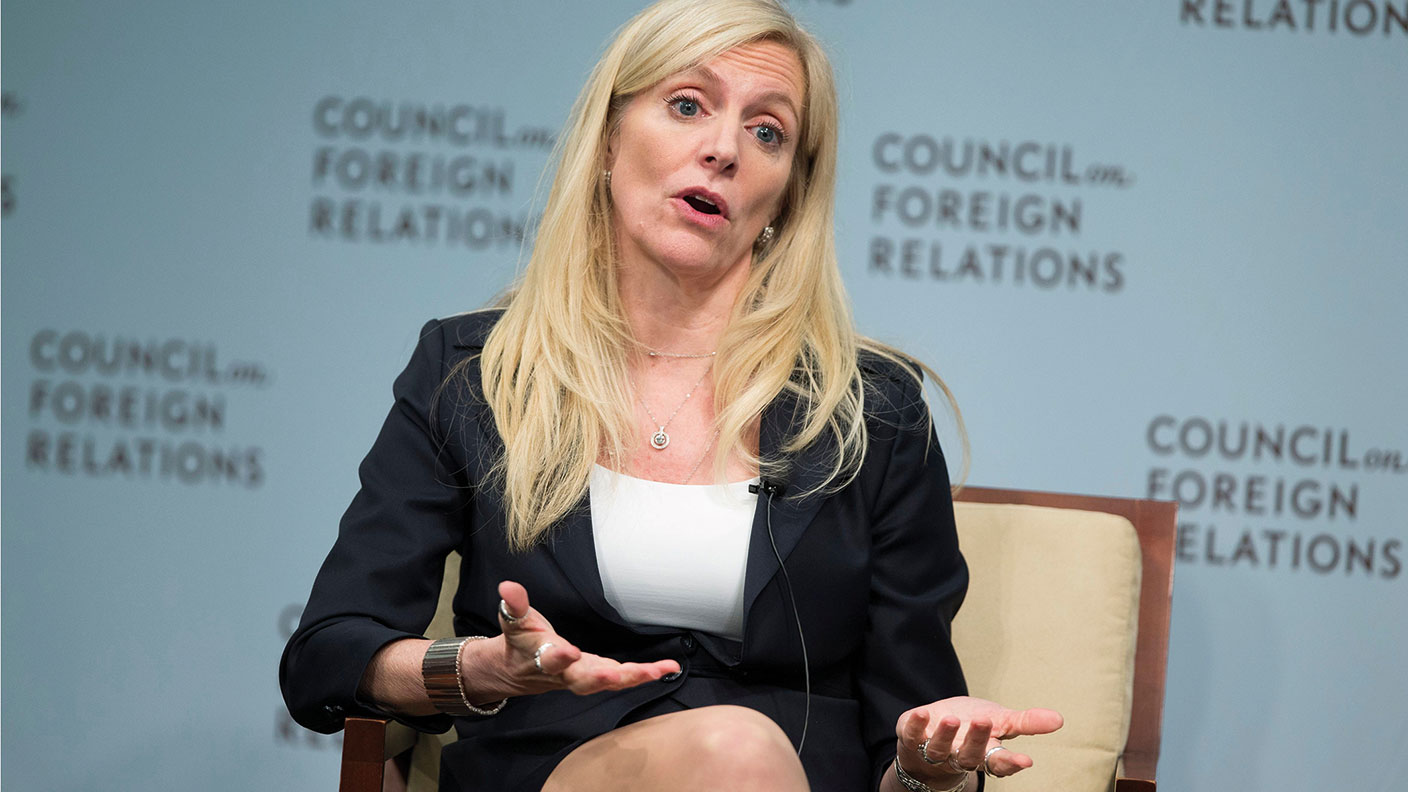The biggest threat to crypto comes from stablecoins
Governments are increasingly getting worried about "stablecoins", cryptocurrencies which have a more "stable value". John Stepek explains what stablecoins are and why they are causing alarm.


Get the latest financial news, insights and expert analysis from our award-winning MoneyWeek team, to help you understand what really matters when it comes to your finances.
You are now subscribed
Your newsletter sign-up was successful
Want to add more newsletters?
Bitcoin and other cryptocurrencies have endured a rollercoaster ride in recent weeks, partly because authorities across the world appear to be paying them more attention.
Yet, judging by the US Federal Reserve’s recent comments, it’s not so much bitcoin but another type of crypto that worries central banks more than any other: “stablecoins”.
We explain stablecoins in more detail below, but in short, the ideas is to create a cryptocurrency with a “stable” value, which means it can actually be used in practical day-to-day transactions as money – very much like government-issued or “fiat” currencies, such as the pound or dollar. While scepticism about crypto’s aspirations abounds, it’s very clear that central banks are taking these potential competitors seriously.
Try 6 free issues of MoneyWeek today
Get unparalleled financial insight, analysis and expert opinion you can profit from.

Sign up to Money Morning
Don't miss the latest investment and personal finances news, market analysis, plus money-saving tips with our free twice-daily newsletter
Don't miss the latest investment and personal finances news, market analysis, plus money-saving tips with our free twice-daily newsletter
In a recent speech, Lael Brainard, one of the Federal Reserve’s more influential governors, noted that “if widely adopted, stablecoins could serve as the basis of an alternative payments system oriented around new private forms of money”.
Brainard warns of a lack of regulatory oversight and “the risk of run-like behaviour” – whereby the value of a private currency collapses because people lose confidence in it (something which has, of course, happened to plenty of fiat currencies over time).
Brainard has a point. The best-known and largest stablecoin is Tether. Tether is “pegged” to the US dollar – in theory you should always be able to swap one Tether for one US dollar. However, to make such a promise you need to be able to back it up, and as Jemima Kelly points out on FT Alphaville, Tether’s story has changed on this over time.
“Tether used to claim all its tokens were backed one-to-one by US dollars held in cash reserves.” However, last month Tether revealed that in fact, just under 76% of its reserves are in “cash or cash equivalents” and overall, just under 3% in total is in actual dollars. This is unaudited, so you also only have Tether’s word to go on.
Yet while the idea of an economy in which private currency issuers compete with one another (rather than the state monopolising the currency), is alien to us today, there have been periods of successful “free banking” in the past.
Regulators will talk disparagingly of “wildcat” banks in the US in the 1800s, but academics generally agree that Scotland’s free banking system worked well between 1716 and 1845.
It’s right to be sceptical of many of the utopian promises and rickety structures coming out of cryptoland. But you should be equally clear-eyed about the position of governments: they have no intention of giving up their monopoly currency issuer status.
Dabble in crypto by all means – but don’t invest money you can’t afford to lose and watch the regulators closely. Ironically, the more popular crypto becomes, the greater the risks.
SEE ALSO
Do Kwon: the King of Crypto Lunatics
Get the latest financial news, insights and expert analysis from our award-winning MoneyWeek team, to help you understand what really matters when it comes to your finances.

-
 Financial education: how to teach children about money
Financial education: how to teach children about moneyFinancial education was added to the national curriculum more than a decade ago, but it doesn’t seem to have done much good. It’s time to take back control
-
 Investing in Taiwan: profit from the rise of Asia’s Silicon Valley
Investing in Taiwan: profit from the rise of Asia’s Silicon ValleyTaiwan has become a technology manufacturing powerhouse. Smart investors should buy in now, says Matthew Partridge
-
 How a dovish Federal Reserve could affect you
How a dovish Federal Reserve could affect youTrump’s pick for the US Federal Reserve is not so much of a yes-man as his rival, but interest rates will still come down quickly, says Cris Sholto Heaton
-
 'Investors should brace for Trump’s great inflation'
'Investors should brace for Trump’s great inflation'Opinion Donald Trump's actions against Federal Reserve chair Jerome Powell will likely stoke rising prices. Investors should prepare for the worst, says Matthew Lynn
-
 The challenge with currency hedging
The challenge with currency hedgingA weaker dollar will make currency hedges more appealing, but volatile rates may complicate the results
-
 What's behind the big shift in Japanese government bonds?
What's behind the big shift in Japanese government bonds?Rising long-term Japanese government bond yields point to growing nervousness about the future – and not just inflation
-
 Can Donald Trump fire Jay Powell – and what do his threats mean for investors?
Can Donald Trump fire Jay Powell – and what do his threats mean for investors?Donald Trump has been vocal in his criticism of Jerome "Jay" Powell, chairman of the Federal Reserve. What do his threats to fire him mean for markets and investors?
-
 Freetrade’s new easy-access funds aim to beat top savings rates
Freetrade’s new easy-access funds aim to beat top savings ratesFreetrade has launched an easy-access exchange traded fund (ETF) range - here’s how the ETFs work and how they compare to the savings market
-
 Go for value stocks to insure your portfolio against shocks, says James Montier
Go for value stocks to insure your portfolio against shocks, says James MontierInterview James Montier, at investment management group GMO, discusses value stocks and slow-burn Minsky moments with MoneyWeek.
-
 Halifax: House price slump continues as prices slide for the sixth consecutive month
Halifax: House price slump continues as prices slide for the sixth consecutive monthUK house prices fell again in September as buyers returned, but the slowdown was not as fast as anticipated, latest Halifax data shows. Where are house prices falling the most?